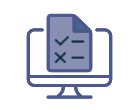Mathematics is one of the oldest and most universal means of creating, communicating, connecting and applying structural and quantitative ideas. Students doing this syllabus will have already been exposed to Mathematics in some form mainly through courses that emphasise skills in using mathematics as a tool, rather than giving insight into the underlying concepts.
This syllabus will not only provide students with more advanced mathematical ideas, skills and techniques, but encourage them to understand the concepts involved, why and how they “work” and how they are interconnected. It is also to be hoped that, in this way, students will lose the fear associated with having to learn a multiplicity of seemingly unconnected facts, procedures and formulae. In addition, the course should show them that mathematical concepts lend themselves to generalisations, and that there is enormous scope for applications to solving real problems. The course is therefore intended to provide quality in selected areas rather than in a large number of topics.
The syllabus is arranged into two (2) Units, each Unit consists of three Modules.
Unit 1: Algebra, Geometry and Calculus
| Module 1 | Basic Algebra and Functions |
| Module 2 | Trigonometry, Geometry and Vectors |
| Module 3 | Calculus I |
Unit 2: Complex Numbers, Analysis and Matrices
| Module 1 | Complex Numbers and Calculus II |
| Module 2 | Sequences, Series and Approximations |
| Module 3 | Counting, Matrices and Differential Equations |
Please click on the appropriate link below to download your forms
- Pure Mathematics Unit 1
- Pure Mathematics Unit 2














